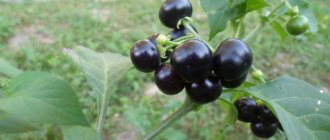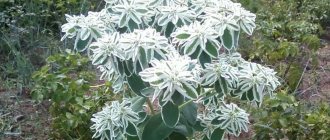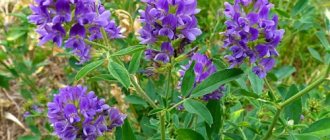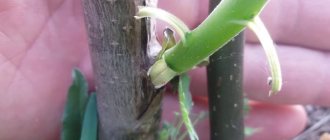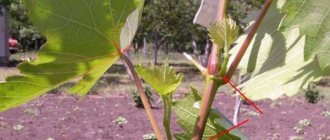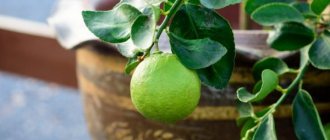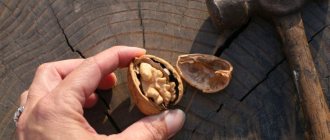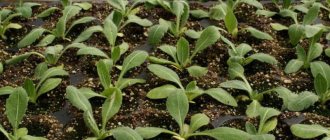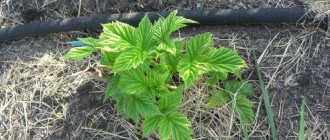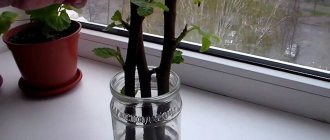Thistle (Sonchus) is a medicinal herbaceous plant belonging to the Asteraceae family. Due to their chemical composition, many species have pronounced beneficial and medicinal properties.
- To get rid of hemorrhoids
What does thistle look like and where does it grow?
The appearance and growing conditions may vary depending on the species characteristics of the plant. For the most part, all varieties are characterized by a dense network of root systems located in the surface layers of the soil. The plant produces yellow reed flowers collected in basket-shaped inflorescences. After flowering, seeds with a very characteristic tuft are formed.
In our country, the perennial has become widespread mainly in gardens and orchards, in littered areas and infrequently cultivated agricultural lands, where it is a malicious and difficult to eradicate weed.
Due to its chemical composition, sow thistle has pronounced medicinal properties.
“Question-answer” section
Question from gardeners: Is it possible to grow thistle and how is it useful?
Thistle is considered a malicious weed, difficult to eradicate from gardens and fields. Its chemical composition has not been sufficiently studied. This plant is used in medicine and cooking. For growing sow thistle, the most useless lands for agriculture can be allocated - wastelands, forest clearings, ravines and mountain slopes. Sow thistles will grow and produce large amounts of greenery everywhere. However, one must still take into account the lack of knowledge about this plant and approach the issue of growing it with caution.
Rate the quality of the article. We want to be better for you:
Active ingredients of the plant
The main active components included in the chemical composition of plant raw materials are presented:
- ascorbic acid;
- beneficial alkaloids;
- sufficient amount of carotene;
- fatty oils;
- saponin;
- tartaric acid;
- oxalic acid;
- lactic acid;
- malic acid;
- tannins;
- choline and inulin;
- light narcotic compounds;
- sufficient amount of rubber.
Due to the significant amount of useful substances, plant materials are of great interest from the point of view of traditional medicine and are widely used as the main component of many medicinal products.
Chemical composition of thistle
Among scientists, thistle, like other poisonous plants with beneficial properties, is of keen interest. Its chemical composition has not yet been studied. However, it is certainly known that this weed plant contains a lot of substances useful to humans.
| Useful material | Effect on humans |
| Carotene |
|
| Vitamin C |
|
| Fixed oils |
|
| Saponins and bitterness |
|
| Wine acid |
|
| Kholin |
|
| Inulin |
|
| Alkaloids |
|
Yellow sow thistle, which is the most common
Gallery: sow thistle (25 photos)
Medicinal and beneficial properties
This genus of plants includes more than one hundred very well studied species. Many varieties have beneficial and medicinal characteristics.
Also read: Wild strawberry: beneficial properties of leaves and berries of the plant
Thistle thistle
This is, as a rule, an annual plant (Sonchus asper), better known as rough sow thistle, or rough. It is distinguished by the formation of a thin and narrowly conical or spindle-shaped root that secretes milky juice. The height of the stem part can reach a meter. The foliage is alternately located along the stem, harsh, dark green with a bluish-blue tint. Yellow basket flowers. The achenes are pale brown, with a whitish tuft.
Traditional medicine is used to get rid of wounds and burns, in the treatment of asthma and bronchitis, and in the treatment of malaria. They have proven themselves in the treatment of sexually transmitted diseases, diseases of the stomach and intestinal tract.
Well proven in the treatment of sexually transmitted diseases, diseases of the stomach and intestinal tract
Field sow thistle
Root shoot perennial (Sonсhus аrvensis) has a weakly spiny simple stem with a leafless apical part. The foliage is spiny and has triangular, toothed lateral lobes. The flowers are small, golden yellow, collected in large basket-like inflorescences.
As a rule, it is not used for medicinal purposes, and is eaten very reluctantly even by farm animals. However, it can lure colonies of aphids from cultivated garden plants.
A well-developed root system extracts minerals from deep in the soil, so when using grass as mulch or for composting, the soil is easily enriched with essential valuable substances.
Field sow thistle is eaten very reluctantly even by animals.
Garden sow thistle
Medicinal annual (Sonсhus oleraceus) known under the names milkweed and bunny, as well as jaundice and hare's lettuce. The stem part is up to a meter high, with frequent branching and serrated, lyre-pinnately divided leaves, which have a large heart-shaped-triangular apical lobe. Characterized by the presence of milky juice. The flowers are light yellow, collected in basket-like inflorescences.
In addition to traditional medicine, young leaves of this species are widely used in the preparation of soups and cabbage soup, as well as vitamin-rich salads. Externally used to get rid of cuts, boils and bedsores. The plant has very pronounced antiparasitic properties.
Such a weed should be combated by emergency measures aimed at weakening its root system
Description
This plant belongs to the Asteraceae family. It can be annual or perennial. It has a powerful root system with central roots going deep into the ground. Its roots are very fragile, so when you try to pull it out, some of them remain in the ground, continuing to grow. Reproduces by roots.
Basically, field and garden sow thistles are found in the garden.
Thistle has smooth, straight stems, empty from the inside. It blooms with yellow flowers in mid-summer until autumn. The flowers are quite large in size, very similar to dandelion. After flowering, it forms a fruit resembling a tuft. Seeds appear in July. It has a pinnately dissected or pinnately lobed leaf structure.
(from top to bottom: field sow thistle, garden sow thistle)
Mostly distributed in Europe, North Africa, the USA, the Caucasus, all regions of Siberia, the Far East, the Urals, and Ukraine.
Favorite places to live:
- wasteland;
- overgrown, uncultivated fields;
- lowlands.
Grows in any soil (dry, fertile, moist), adapting and adapting in place.
Rapid spread throughout the area threatens the destruction of all cultivated plants, since the weed drinks all the juices from them and does not allow them to grow normally.
If you are late in destroying it, it will scatter the seeds throughout the garden, which will make further disposal of it difficult. Depletes the soil.
Thistle is like a weed
Such a weed plant should be combated by emergency measures aimed at weakening its root system. Only in this case is it possible to obtain complete removal of the weed from the garden.
Also read: Tribulus terrestris herb in folk medicine
To get rid of weeds use:
- chemical substances;
- folk recipes;
- mechanical method.
In the first case, herbicides are used. Such chemicals are best suited for use in uncultivated areas, due to the increased toxicity of the composition. During the processing of the site, it is imperative that all necessary precautions are taken. Folk remedies involve the use of kerosene to treat weeds. Plants such as lupine, alfalfa, nettle, rye and peas can also be planted in areas susceptible to self-seeding of thistle.
In the fight against thistle, frequent digging and weeding of the weed are quite effective.
Fight in a potato field
Weed is one of the main dangers when growing potatoes. The vegetable does not receive enough nutrients, the microclimate is disrupted, and the potatoes are not ventilated, which leads to late blight.
If weeds have invaded potato fields, then one can only dream of a good harvest. Due to the presence of weeds, the root crop grows small, deformed and unsuitable for long-term storage. In order to avoid these problems, it is necessary to combat weeds, and especially sow thistle. How to get rid of thistle in a potato field?
Benefits of thistle honey
Healing thistle honey is transparent and light, but may well have a greenish or yellowish tint. The taste of this product is moderately sweet and rich, with a delicate aftertaste. Characteristic is a subtle and light floral aroma. This honey is not thick, has a homogeneous creamy structure, and after crystallization it is fine-grained. Thistle honey contains a sufficient amount of very useful substances, represented by inulin and choline, saponins and bitters, alkaloids and all kinds of acids.
Thistle honey contains a sufficient amount of very useful substances, represented by inulin and choline, saponins and bitterness, alkaloids and all kinds of acids
This is a very effective remedy if it is necessary to restore immunity and general strength during the rehabilitation period, against the background of constant stress and nervous exhaustion, during active physical activity or the need to gain weight. Very high effectiveness of the use of thistle honey has also been noted for colds, sore throats, bronchitis and influenza conditions.
Use of the plant in traditional medicine recipes
In folk medicine, decoctions, infusions, tinctures and other forms of medicines based on sow thistle are widespread.
To get rid of hemorrhoids
To prepare the infusion, a handful of dry plant material is poured with a liter of boiling water and left for an hour. The infusion is then strained and used for sitz baths.
Also read: Zhoster Pursha: an ancient Indian secret for excellent digestion
For compactions in the lymph nodes
One tablespoon of plant material is poured into a glass of boiling water. The product is boiled for five minutes, after which it is filtered and taken a couple of tablespoons three times a day.
Remedy for jade
A tablespoon of dried roots needs to be poured with half a liter of boiling water, then boiled for five minutes and cooled to room temperature. The cooled broth must be carefully filtered, and then taken for a couple of weeks, a tablespoon three or four times a day.
https://www.youtube.com/watch?v=_Oyp-1pYbs0
To stimulate lactation
If breastfeeding mothers have insufficient milk production, preparing a special product to stimulate lactation gives very good results. For this purpose, one teaspoon of dry plant material should be poured with a glass of boiling water and left for a quarter of an hour. The resulting infusion is carefully filtered and then taken warm about half an hour before breastfeeding.
In folk medicine, decoctions, infusions, tinctures and other forms of medicines based on sow thistle are widespread.
Methods of preparation and use
Potions from thistle are suitable for both external and internal use. They produce a pronounced effect when used in accordance with the instructions.
Tincture
An alcohol solution is used to treat the following pathologies:
- diabetes;
- hypertension;
- obesity.
To make a healing remedy, you will need:
- 1 fresh sow thistle root;
- 1 liter of vodka.
The tincture is made like this:
- The fresh root is thoroughly washed and crushed.
- The raw materials are filled with an alcohol base.
- A dark glass bottle with the product is placed in a cool place for a month.
- After the specified time, the composition is filtered and stored in the refrigerator.
Drink thistle tincture 25 drops three times a day
Important! The dose is increased gradually to the maximum amount.
Infusion, decoction, tea
Drinks made from medicinal herbs can improve your well-being and normalize your body’s functioning. To prepare the infusion use:
- 1 tbsp. l. dried or fresh leaves;
- 1 tbsp. boiling water
The drink is made according to the recipe:
- The raw materials are poured with the specified amount of boiling water.
- The product is infused for at least four hours.
- Before use, the composition is filtered.
Infusion of thistle helps to normalize blood pressure, strengthen blood vessels, eliminate headaches, and also improve immunity
The drink can be brewed in a thermos. It is taken before meals. For periodontal disease, the infusion relieves bleeding and allows you to freshen your breath. Foot baths with the addition of the drug help prevent colds when cooling.
Decoctions are made from the leaves of a medicinal plant. Fresh leaves are thoroughly washed, poured with boiling water, and cooked for two minutes. Before use, the composition is filtered.
A decoction of thistle or vegetable thistle can be used to treat wounds and inflammatory skin elements
It is recommended to use sow thistle tea as a tonic and also a diaphoretic. To prepare it, take dried leaves of a medicinal plant. They are brewed with boiling water and the drink is filtered after 15-20 minutes.
Sow thistle tea is drunk on an empty stomach before breakfast or two hours before bedtime to prevent insomnia.
Juice
Fresh stems of the plant are used to obtain nectar. They are cut off and the juice is used to treat warts and papillomas. The procedure can be performed until the benign formations completely disappear.
When treating growths with sow thistle juice, it is important not to go beyond the affected tissues
Honey
The beekeeping product has a light yellow tint and a pleasant floral aroma. The nectar crystallizes quite quickly, without losing its valuable properties. Honey is recommended to be consumed with tea in old age and in the presence of stomach ulcers. External treatment with the sweet mass is possible in the presence of furunculosis.
Honey from sow thistle has anti-inflammatory properties
Contraindications and harm
Pharmaceutical preparations and folk remedies obtained using plant materials from thistle are contraindicated for use during pregnancy, as well as in early childhood. Some people may experience pronounced individual intolerance and hypersensitivity to the active substances that are part of the chemical composition of such a medicinal plant.
Among other things, it is very important to remember that sow thistle is a poisonous plant, so before using any preparations from it, you should definitely consult with your doctor.
It is extremely important to follow all precautions and in no case exceed the dosage prescribed by your doctor.
